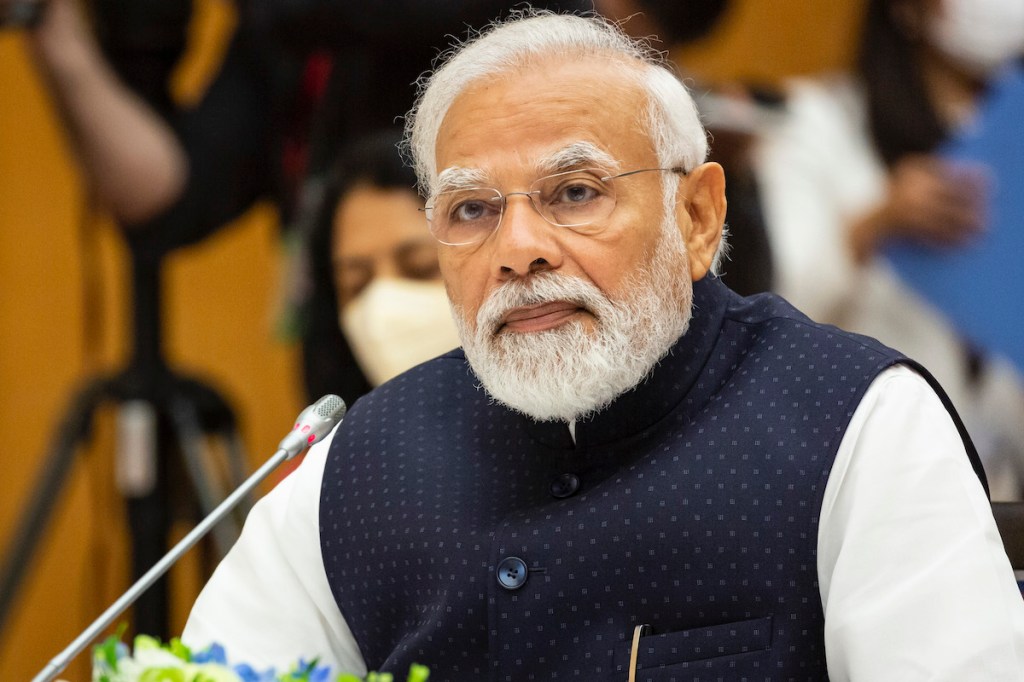To receive Morning Links in your inbox every weekday, sign up for our Breakfast with ARTnews newsletter.
The Headlines
NEH FUNDS TRUMP PROJECT. The National Endowment for the Humanities will redirect its funding towards President Trump’s proposal for a “National Garden of American Heroes” sculpture garden, reports the New York Times. The news comes after Trump’s administration ordered the NEH to cancel over 85 percent of existing grants to museums and historical sites across the US, and to make massive staff cuts, which the Washington Post reports effectively began yesterday. The number of layoffs wasn’t immediately clear, but an NEH union representative said “almost 75 percent of the staff should prepare” for it. As for Trump’s sculpture park, people who attended a meeting about plans for the project on Wednesday reportedly said it is supposed to celebrate Trump’s interpretation of patriotism. This, as the endowment shifts to championing the White House’s agenda, including the celebration of the 250th anniversary of American independence on July 4, 2026.
Related Articles

FRANCE, INDIA, MUSEUMS. France Muséums, the Paris-based company that stewarded the creation of the Louvre Abu Dhabi, has been tapped to help build a new national museum in Delhi, reports Le Monde. The museum project spearheaded by Prime Minister Narendra Modi is meant as a major upgrade to India’s existing, smaller national museum, but the new institution, called the Yuga Yugeen Bharat, is already subject to a heated debate on how it will portray the country’s history. Modi has been criticized as wielding archeology as a political weapon, notably by building a Hindu temple in the northern city of Ayodhya, on a site over which Muslim and Hindus have been battling for decades, as ARTnews reported. Additionally, little information about the project’s budget or planned programming have been made public. France’s involvement had, until now, escaped public’s notice, but scrutiny has begun in earnest: “By aiding a future national museum conceived by Hindu nationalists, France will contribute to the rewriting of history,” said Christophe Jaffrelot, a French political scientists specializing on the area.
The Digest
A group called Everyone Hates Elon has organized a protest art project in London, where the public is invited to grab a sledgehammer, and smash an old Tesla (while wearing protective helmets), in the name of a “debate about wealth inequality.” The broken and tagged Tesla Model S, initially provided by a donor for this purpose, will then be auctioned, with proceeds going to support food bank charities. [The Guardian]
17th century air pollution particles are helping date a mysterious Vermeer painting, which publicly surfaced in 2004. Feldspar particle deposits between layers of paint in “Young Woman seated at a Virginal,” are believed to come from Delftware ceramics in the artist’s hometown, and help explain how Vermeer completed the painting and when. [The Art Newspaper]
Lebanese architect Lina Ghotmeh was selected by Qatar Museums to design Qatar’s new, permanent pavilion in the Giardini della Biennale in Venice. It marks the first pavilion to be added to the venue in the last 30 years. [Dezeen]
The collection of self-taught artist and early, ardent patron of graffiti art, Martin Wong, is being presented at the Museum of the City of New York, in an exhibition curated by Sean Corcoran, titled “Above Ground,” through Aug. 10. Wong, a gay Chinese American who also co-founded the short-lived Museum of American Graffiti in 1989, died after being diagnosed with H.I.V., but not before donating over 300 significant artworks and other media to the museum. [The New York Times]
The Kicker
SAY GOODBYE. An intriguing art project invites the public to say goodbye, whatever that may mean to them, reports the Los Angeles Times. Artistic duo Alexis Wood and her partner, documentary filmmaker Adam Trunell have been placing instructions onto the few remaining pay phones around Los Angeles, which invite users to pick up the phone, dial a free number, and leave a message on a recorded line to “say goodbye.” The recorded responses are then edited and shared on social media, where anyone can listen to them. (If callers want their contribution to remain private, they are asked to say so.) The gathered recordings “are snapshots of grief, and our desire to connect, but also audio logs of loneliness in Los Angeles,” writes Todd Martens. Some call to say goodbye to someone who has passed away, or to apologize, others, to bid farewell to a former self, as they try to move on in their lives. “Yes, this payphone works,” read the stickers placed on the phones. “Someday, these will be gone, like you, me, and everyone else,” it states, before inviting people to leave their message, “before it’s too late.”

